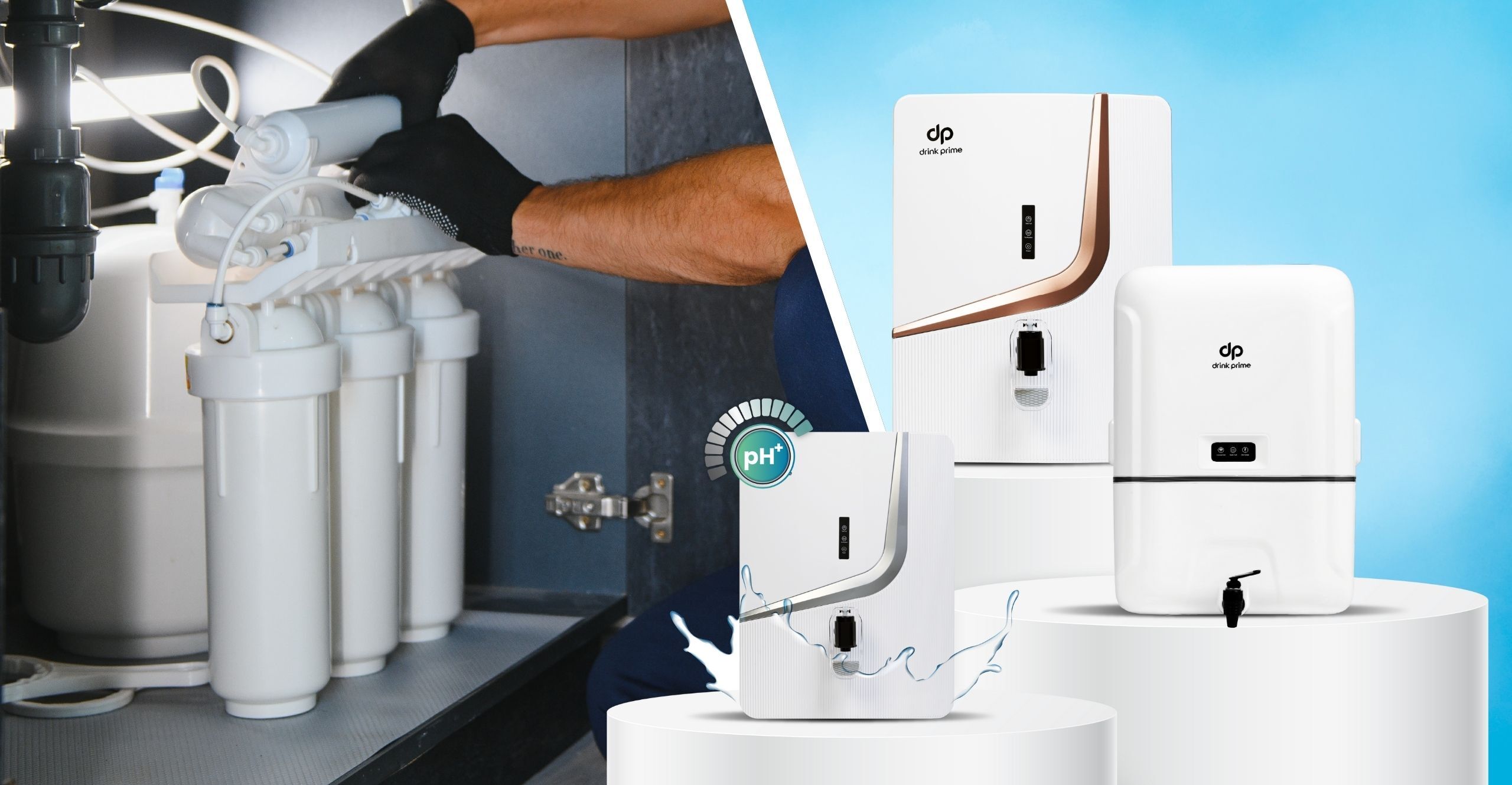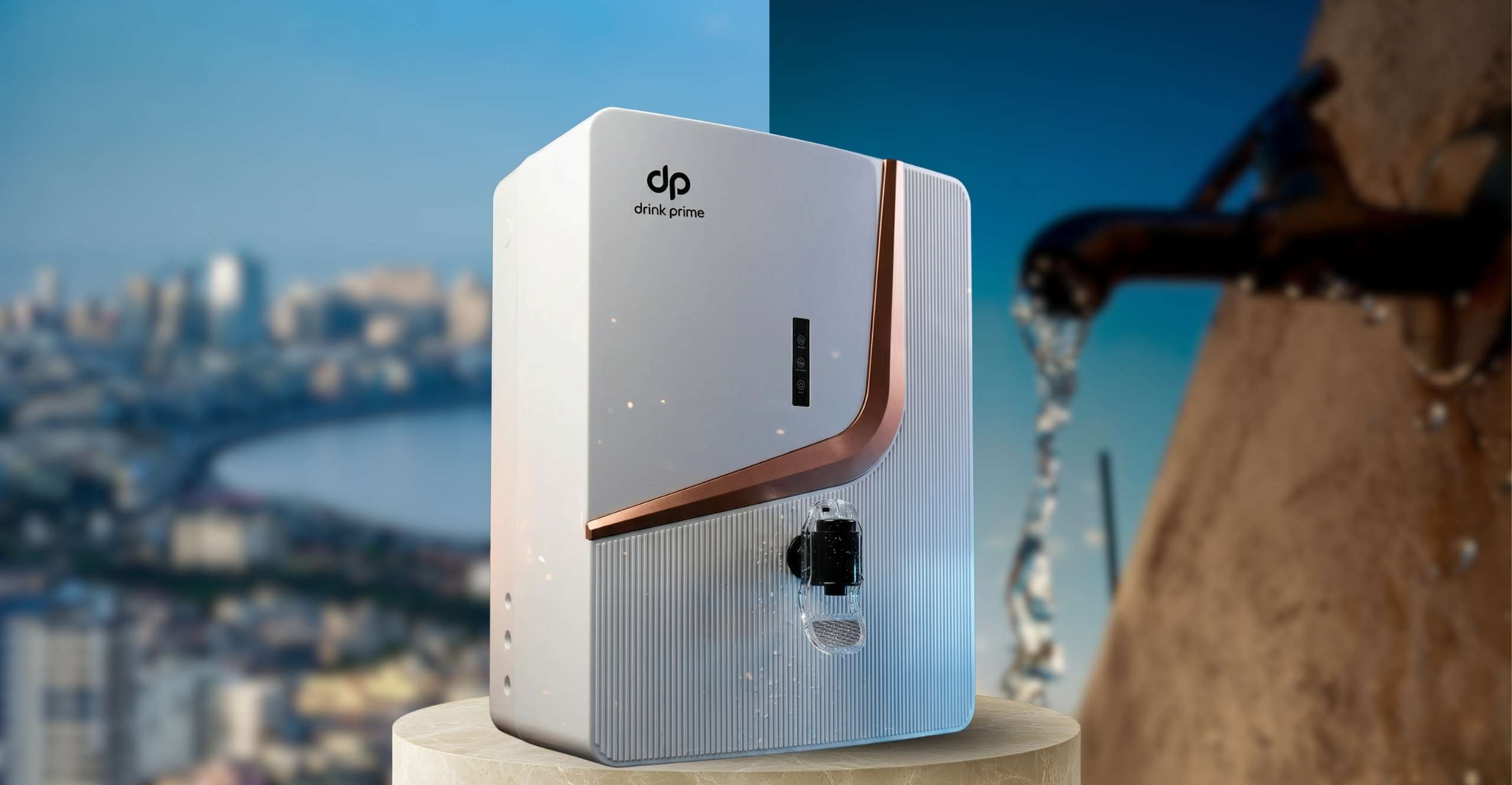When it comes to the quality of drinking water, you cannot afford to take chances. The water available for consumption currently, through civic sources may not be ideal for your consumption. The source of the water, the pipelines it travels through, its chemical and mineral load, etc. affects the quality of water. Whether you are trying to treat discolored water or are trying to soften the water, there are different types of filters available today, to help you deal with different types of water.
Here we examine 10 different types of filters used in water purifiers, to help you solve your water-related woes.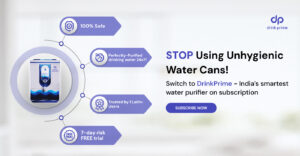
What are water filters?
Water filters are devices that remove the contaminants from water, thus making it safe for consumption. They remove unwanted impurities like sediments, and pathogens like bacteria and even target specific types of contaminants like lead. They function by filtering out big particles and eliminating pathogens that can lead to various illnesses.
How do water filters work?
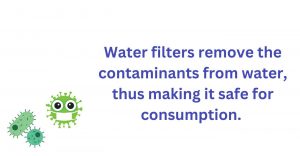
The water filter system uses mediums like activated charcoal, membranes, ion exchange resins, etc. to help it filter the unwanted impurities out of water. The difference in the way they operate is based on the multiple ways in which they remove impurities, whether it is by removing the solids dissolved in the water via a membrane-like in RO units, by drawing the impurities onto absorbent substances like activated carbon blocks or by trapping the impurities using gravity.
Each of the filters available is designed to address a particular water problem and many of the filters use a combination of methods to ensure multiple levels of filtration.
Related Reading: How to Check the Filters of a Water Purifier?
10 types of water filters
1. Sediment filters
These filters are used to filter out sediments like large particulate matter, dust, sand, silt rust, etc. In most cases, sediment filters act like a first line of defense or pretreatment filters. They ensure that the water available for purification is free of large contaminants, thereby protecting the next-stage filtration system from damage and extending its life. The medium used for this type of filtration is usually sand or red brick, known as grit.
2. Reverse osmosis
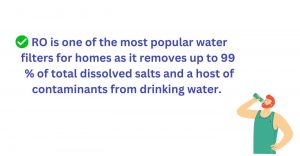
In this type of filtration system pressure is used to reverse the natural flow of liquids through a semipermeable membrane.RO is one of the most popular water filters for homes as it removes up to 99 percent of total dissolved salts and a host of contaminants from water, making it ideal for consumption. Reverse Osmosis systems are relatively expensive to install and maintain. It also leads to water wastage.
3. Distillation
This is a filtration system that uses high levels of heat, to boil the contaminated water and then cool down the steam that arises from this boiling process. This is then condensed back to clean drinking water. The contaminants are left behind in the boiling vessel as they cannot evaporate. This method is very effective in eliminating bacteria like coliform as well as lead, arsenic, etc. This is an expensive process that requires a lot of energy.
4. Ion exchange filters
These filters use an ion exchange resin, with positively charged hydrogen ions (H+) in it. They are porous, bead-like substances that attract and exchange ions in water, depending on their charge. They remove contaminants by attracting ones with the same charge. They also soften water by replacing the sodium ions which cause hardness, with potassium (k) or hydrogen. This process of filtration does not require heat or electricity to work, but it is very expensive, as ion exchange resins are costly to replace.
5. UV filters
In this process, ultraviolet rays are used to destroy microorganisms like e coli and staphylococcus in the water. But ultraviolet rays kill only living things, so this method does not remove harmful chemicals and metals present in the water. Hence, this is best used in tandem with other methods like RO or activated carbon.
6. Ultrafiltration
While this is like RO in that it uses membrane filtration, UF filters out particles larger than 1 nanometer compared to 5 nanometers in RO, ensuring that it removes more turbidity and contaminants. Although UF is more effective than RO and does not require energy to operate, it is more expensive.
7. Activated alumina
This is useful when the source water has a high TDS or sulfate concentration. Activated alumina cartridges have granules with absorptive surfaces that absorb contaminants as water passes through. Regeneration of activated alumina is best done by professionals, as dangerous chemicals can be produced. It is also not a popular household choice.
8. Ceramic filters
These filters have tiny pores on their surface that trap matter larger than them, thus filtering water. They are inexpensive and do not require electricity. Ceramic filters treated with silver can destroy bacteria and prevent mold, but they are ineffective against viruses.
9. Air-injected iron filters
These filters use oxygen to clear off iron and manganese from the water. Air is induced in front of the pressure tank by using a venturi. The oxygen thus pushed through the pressure tank can be used to oxidize iron and manganese. But higher levels of iron cannot be removed by this method.
10. Chemical injection iron filters
In this system, chlorine is injected via a chemical feed pump into the water. The chlorine reacts with the iron to form rust which is then removed by a sediment filter after it has oxidized. This is followed by a carbon filter which removes the excess chlorine. It is mostly used to remove bacteria, iron, and hydrogen sulfide from well water.
Get 7 Days Risk Free Trial
Conclusion
There are a variety of filters available in the market today and each of them is designed to address a specific problem. So, it is important that you first study the type of water available to you and identify the contaminants that must be dealt with. Not all filters work with all types of water, so a knowledge of the types of filters available will help you make an informed decision.
FAQs
Is RO UV water filter is good for health?
Yes, RO UV water filter types are good for health. RO removes dissolved impurities like heavy metals, while UV eliminates harmful microorganisms like bacteria and viruses. Together, they provide safe, clean drinking water, ensuring it’s free from contaminants and suitable for long-term health. You should totally go for DrinkPrime RO UV water purifier.
Which is better, RO or UV filter?
RO and UV types of water filters serve different purposes. RO removes dissolved impurities like heavy metals and salts, making it ideal for hard water. UV kills bacteria and viruses but doesn’t remove dissolved solids. A combination of RO and UV is best for comprehensive purification and ensuring safe drinking water. You can subscribe to DrinkPrime RO UV water purifier monthly plan.
What type of filter is best for drinking water purifier?
The best filter type for a purifier depends on water quality. RO is ideal for hard water with dissolved impurities, UV is best for killing microorganisms, and activated carbon removes odors and chemicals. A combination of RO, UV, and carbon water filter types offers the safest and purest drinking water. You can opt for a monthly subscription to the DrinkPrime RO UV water purifier.
What is the difference between RO and UV water filter?
RO filters remove dissolved impurities like salts, heavy metals, and chemicals by forcing water through a semi-permeable membrane. UV filters, on the other hand, use ultraviolet light to kill bacteria and viruses but don’t remove dissolved solids. Combining both water filter types ensures comprehensive water purification. You can choose a monthly subscription plan for the DrinkPrime RO UV water purifier.

